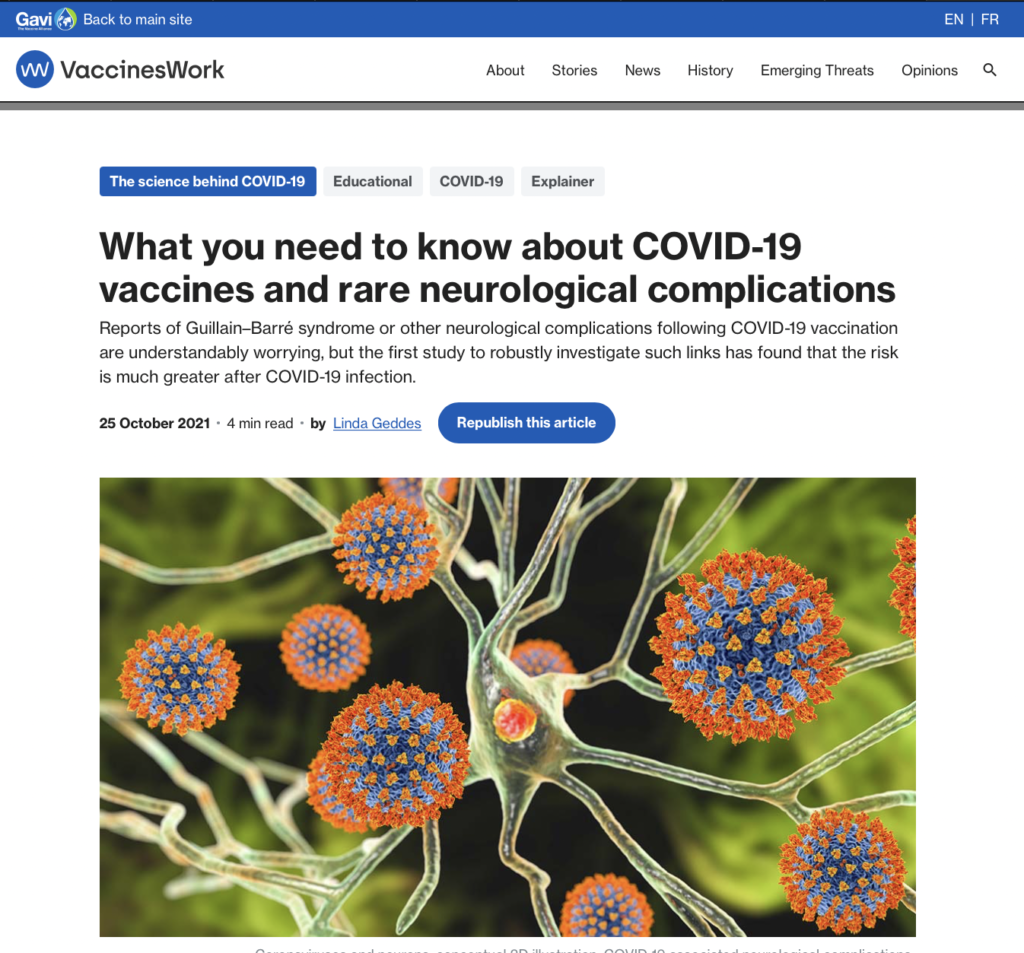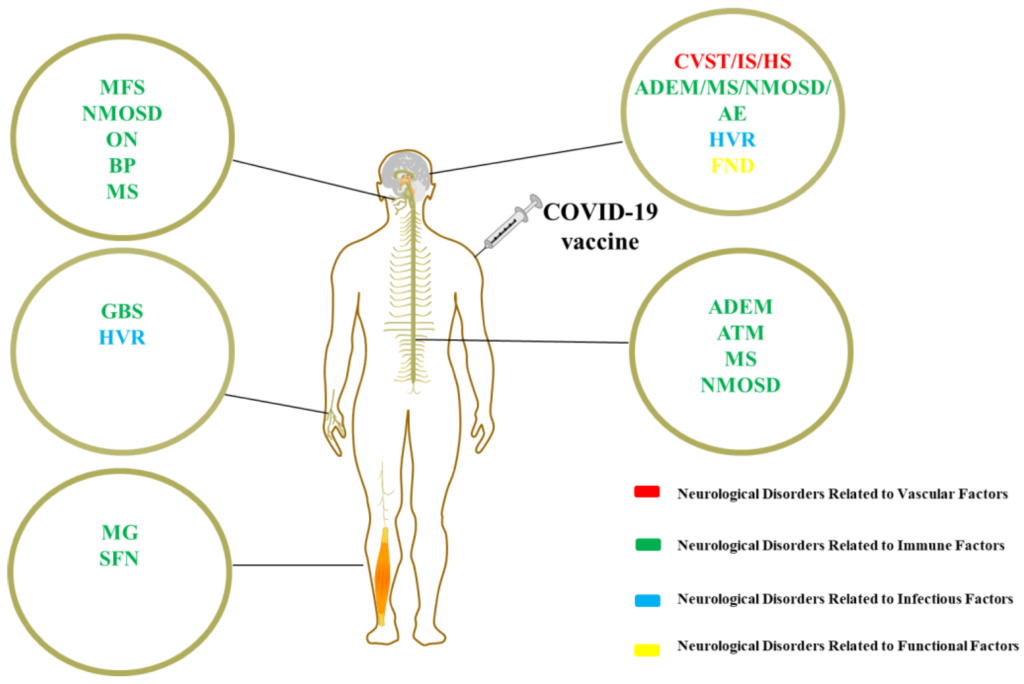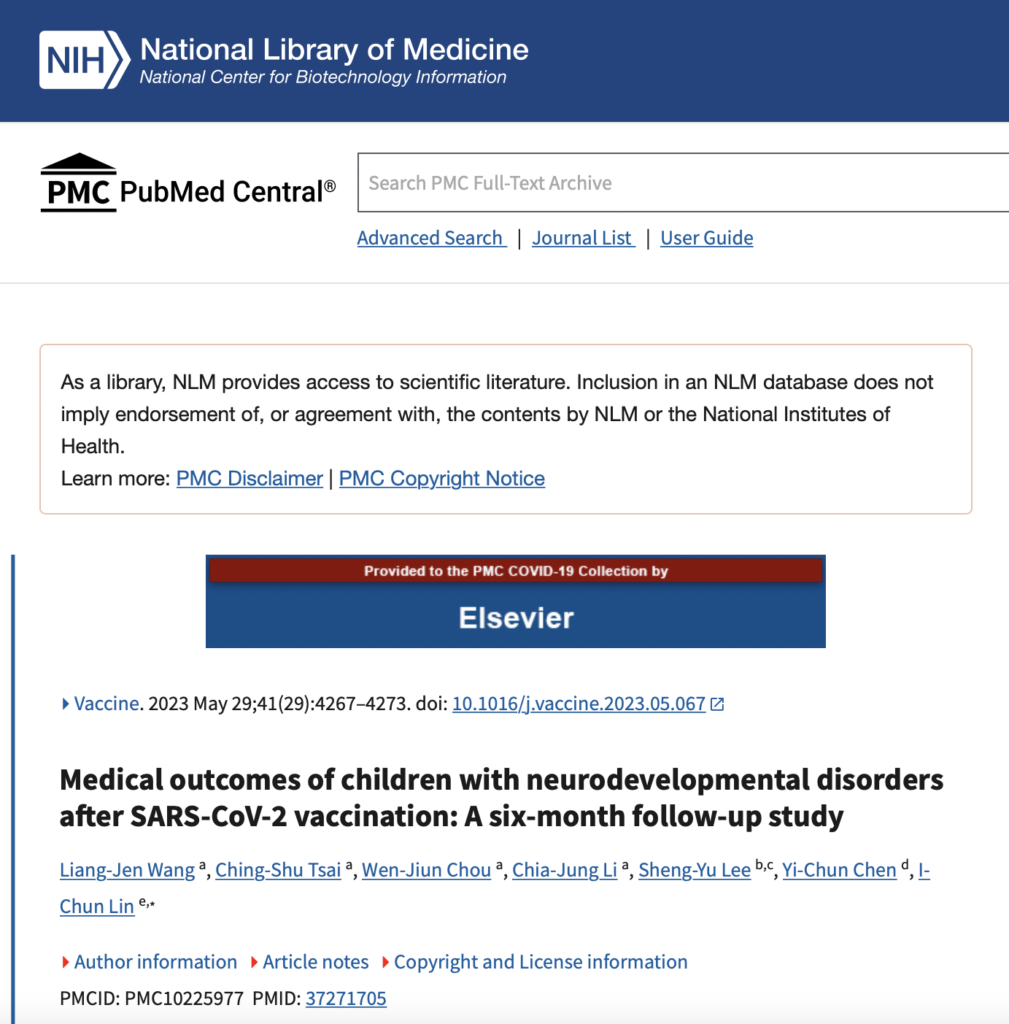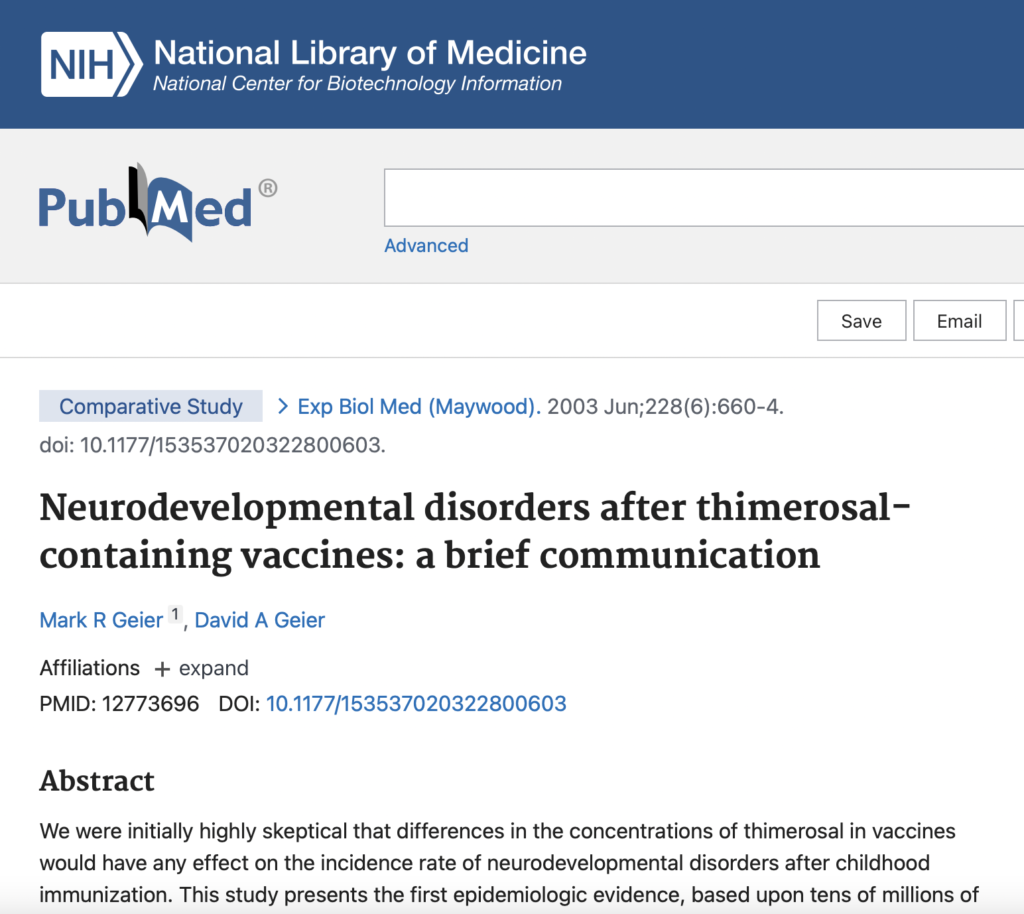There are certain pieces of evidence that suggest Bill Gates may have had intentions to instigate the Guillain–Barré syndrome (GBS) outbreak in order to promote vaccination. This revelation stems from an examination of Gates’ own insights on the syndrome, which seem to tie back to his efforts in advocating for widespread vaccination programs globally.
It is quite revealing that Gates’ website discussed GBS as far back as 2021, indicating that they were already aware of the neurological implications of the syndrome, particularly in relation to vaccines. This raises questions about a potential agenda to push for vaccination campaigns that could result in an increase in GBS cases, ultimately leading to more demand for vaccines.
A report from Gavi, a global vaccine alliance, highlights that while reports of Guillain–Barré syndrome and other neurological complications after COVID-19 vaccination are understandably alarming.

When deciding to get vaccinated, it’s crucial to be aware of the potential risks. Although severe side effects are quite rare, they can still occur. Are you willing to take that risk?
When someone has GBS, their immune system starts to attack parts of their own body by mistake. This mainly affects the myelin sheath and the axons of the nerves outside the brain and spinal cord.
The myelin sheath plays a key role in sending nerve signals. When it gets injured or breaks, the nerves can’t communicate well. This leads to muscles not being able to react to the brain’s messages. Since the nerve system works in both directions, the person might also lose the ability to feel sensations like heat, pain, or extreme cold.
Neurologic Disorders
Neurodevelopmental disorders are a group of mental conditions affecting the development of the nervous system, which includes the brain and spinal cord.
Neurological Disorders Following COVID-19 Vaccination

- CVST cranial venous sinus thrombosis IS ischemic stroke
- HS hemorrhagic stroke
- ADEM acute disseminated encephalomyelitis
- ATM acute transverse myelitis
- MS multiple sclerosis
- GBS Guillain–Barre syndrome
- MFS Miller–Fisher syndrome
- NMOSD neuromyelitis optica spectrum disorder
- ON optic neuritis
- AE autoimmune encephalitis
- MG myasthenia gravis
- SFN small fiber neuropathy
- BP Bell’s palsy
- HVR herpes virus reactivation
- FND functional neurological disorder.
Types of Neurodevelopmental Disorders
There are many different types of NDs, below are a few of the most prevalent ones;
- Attention-deficit/hyperactive disorder (ADHD)
- Autism spectrum disorder (ASD)
- Cerebral palsy
- Communication disorders
- Conduct disorders
- Intellectual disabilities
- Learning disorders
- Neurodevelopmental motor disorders
Neurological complications following COVID-19 vaccination
Mild neurological effects of the COVID-19 vaccine include weakness, numbness, headache, dizziness, imbalance, fatigue, muscle spasms, joint pain, and restless leg syndrome are more common, while tremors, tinnitus, and herpes zoster are less common. On the other hand, severe neurological complications included Bell’s palsy, Guillain–Barre syndrome (GBS), stroke, seizures, anaphylaxis, and demyelinating syndromes such as transverse myelitis and acute encephalomyelitis . Among these, the most dangerous neurological complication caused by COVID-19 vaccines, especially adenovirus-based, is cerebral venous sinus thrombosis in women of childbearing age
What Vaccines Lead to GBS?
Guillain-Barré syndrome can stem from many different medical conditions. Patients often do not recognize the symptoms right away, as it can take up to several weeks after the vaccination for the symptoms to surface.
These are some of the most commonly reported vaccines that have led to GBS:
- Influenza (flu) vaccine
- Hepatitis B vaccine
- Gardasil or HPV vaccine
- MMR vaccine
- Varicella vaccine
- Meningococcal vaccine
- Many other common vaccines
Patients who develop GBS often face a long recovery.
How Autism is Connected to Neurodevelopmental disorder like GBS
The issue of vaccines as a possible cause of autistic spectrum disorders (ASD) and neurodevelopmental disorders (NDDs) has been a topic since 1999.


Autism spectrum disorder (ASD), or simply autism, is a Neurodevelopmental disorder “characterized by persistent deficits in social communication and social interaction across multiple contexts” and “restricted, repetitive patterns of behavior, interests, or activities”.
The connection between autism and neurodevelopmental disorders like GBS is altered immune responses.
Autism and GBS, both conditions are believed to have underlying neurological factors. Research suggests that individuals with autism may have abnormalities in their immune system, which could potentially increase their risk of developing autoimmune disorders like GBS.
Common Symptoms in Autism and GBS
Both autism and GBS can present with various symptoms that affect the nervous system. In autism, these symptoms may include social difficulties, communication challenges, repetitive behaviors, and sensory sensitivities. In GBS, symptoms may include muscle weakness, tingling or numbness in the extremities, difficulty walking, and in severe cases, paralysis.
Studies have shown that individuals with autism may have dysregulated immune systems, leading to increased inflammation and autoimmunity. These immune abnormalities could potentially contribute to the development of conditions like GBS, where the immune system attacks the peripheral nervous system. Understanding and addressing these immune dysfunctions could be crucial in managing both autism and neurodevelopmental disorders effectively.
The most important and most common complications are cerebral venous sinus thrombosis (more about AstraZeneca), transverse myelitis (more about Pfizer, Moderna, AstraZeneca, and Johnson & Johnson), Bell’s palsy (more about Pfizer, Moderna, AstraZeneca), GBS (more about Pfizer, AstraZeneca, and Johnson & Johnson), and the first manifestation of MS (more about Pfizer).
Common Neurological Conditions That Can Be Caused By Vaccines
Vaccines, while generally safe and effective, can sometimes trigger adverse reactions that affect the nervous system. These reactions can lead to various neurological conditions, including the following.
Encephalitis
Encephalitis is inflammation of the brain that can occur following a vaccine. It can cause symptoms such as fever, headache, confusion, seizures, and changes in behavior. While encephalitis can occur naturally, vaccines can sometimes trigger this condition in rare cases.
Encephalopathy
Encephalopathy is a broad term that refers to any abnormal brain function. It can manifest as a wide range of symptoms, including seizures, altered consciousness, and developmental regression. Vaccines, particularly those containing whole-cell pertussis, have been associated with encephalopathy.
Acute Disseminated Encephalomyelitis (ADEM)
ADEM is a rare inflammatory demyelinating condition that affects the brain and spinal cord. It typically occurs after a viral infection or vaccination. Symptoms can include fever, headache, confusion, weakness, and difficulty speaking or walking. ADEM can be a severe condition, and prompt medical attention is crucial.
Transverse Myelitis (TM)
Transverse Myelitis is inflammation of the spinal cord that can cause pain, weakness, and sensory disturbances. While the exact cause of TM is unknown, vaccines, including those for hepatitis B and tetanus, have been associated with its development.
Neuromyelitis Optica (NMO)
NMO is an autoimmune inflammatory disease that primarily affects the optic nerves and spinal cord. Vaccines, particularly one for human papillomavirus (HPV), have been linked to the development of NMO.
Chronic Inflammatory Demyelinating Polyneuropathy (CIDP)
CIDP is a rare neurological disorder characterized by progressive weakness and impaired sensory function. While the exact cause of CIDP is unknown, vaccines, such as those for influenza and hepatitis B, have been associated with its development.
Seizures
Seizures are a potential side effect of vaccines in some individuals. While fever-related seizures can occur after certain vaccinations, they are generally not associated with long-term neurological complications. However, if seizures continue beyond the expected timeframe or if they are accompanied by other concerning symptoms, they can have lasting effects.
Cerebral Ataxia
Cerebral Ataxia is a neurological condition that affects balance and coordination. Vaccines, including those for chickenpox and influenza, have been associated with the development of cerebral ataxia.
Bells’ Palsy
Bells’ Palsy is a condition characterized by sudden weakness or paralysis on one side of the face. While the exact cause is unknown, vaccines, including those for influenza and COVID-19, have been associated with the development of Bells’ Palsy in rare cases.
Brachial Neuritis
Brachial Neuritis is a condition characterized by severe shoulder pain, weakness, and numbness. It is believed to result from inflammation of the brachial plexus, a network of nerves in the shoulder and arm. Vaccines, particularly those containing tetanus toxoid, have been associated with the development of brachial neuritis.
Macrophagic Myofasciitis (MMF)
MMF is a rare inflammatory condition that affects the muscles and connective tissues. It has been associated with the aluminum adjuvants used in some vaccines, such as the hepatitis B vaccine. MMF can cause muscle pain, weakness, and fatigue.
Aplastic Anemia
Aplastic anemia is a condition characterized by a decrease in the production of red blood cells, white blood cells, and platelets in the bone marrow. Certain vaccines, including those for hepatitis A, hepatitis B, and influenza, have been linked to aplastic anemia.
Opsoclonus-Myoclonus Syndrome (OMS)
OMS is a rare neurological disorder characterized by rapid, uncontrolled eye movements and involuntary muscle jerks. While the exact cause of OMS is unclear, vaccines, including those for influenza and rabies, have been associated with its development.
What Vaccines Are Known to Cause Neurological Conditions?
Several vaccines have been associated with more cases of neurological conditions. . Some vaccines that have been linked to neurological conditions include:
- Whole-cell pertussis-containing vaccines (DTaP, DTaP-IPV/Hib)
- Measles, mumps, and rubella (MMR) vaccine
- Human papillomavirus (HPV) vaccine
- Hepatitis B vaccine
- Tetanus-containing vaccines
- Influenza vaccine
The benefits of vaccines in preventing serious diseases usually outweigh the potential risks of these rare neurological side effects. However, if you or a loved one experiences any concerning symptoms following vaccination, seek medical attention and consult with a vaccine injury lawyer to discuss your options.
What are some rare neurological side effects of the MMR vaccine?
The MMR vaccine, which protects against measles, mumps, and rubella, is generally safe and well-tolerated. However, in rare cases, it can cause certain neurological side effects. Some of these rare side effects include:
Long-term seizures
In extremely rare cases, the MMR vaccine can trigger long-term seizures. These seizures can last for several minutes or even hours. If you or your child experiences prolonged seizures following the MMR vaccine, seek immediate medical attention and consult with a vaccine injury lawyer to understand your legal options.
Coma
Although extremely rare, there have been a few reported cases of individuals falling into a coma after receiving the MMR vaccine. If you or a loved one experiences a coma after vaccination, it is crucial to seek emergency medical care and consult with a vaccine injury lawyer to explore your legal options.
Permanent brain damage
While incredibly rare, there have been rare instances of permanent brain damage associated with the MMR vaccine. This severe complication can have long-lasting effects on an individual’s cognitive and physical functioning. If you suspect that the MMR vaccine has caused permanent brain damage, consult with a medical professional immediately, and consider reaching out to a vaccine injury lawyer for guidance.
Julie Gerberding, the head of the CDC, went on CNN’s House Call with Dr. Sanjay Gupta to discuss the Hannah Poling case and admitted that vaccines trigger autism
Source: MDPI, BMC, Jeffrey S. Pop & Associates, Wikipedia,
Also Read:
